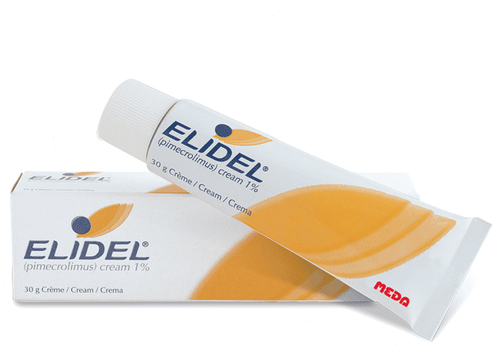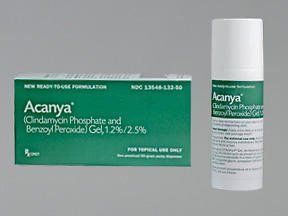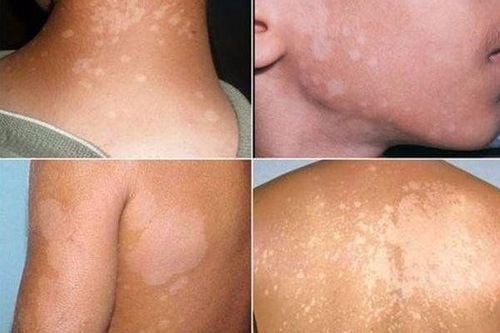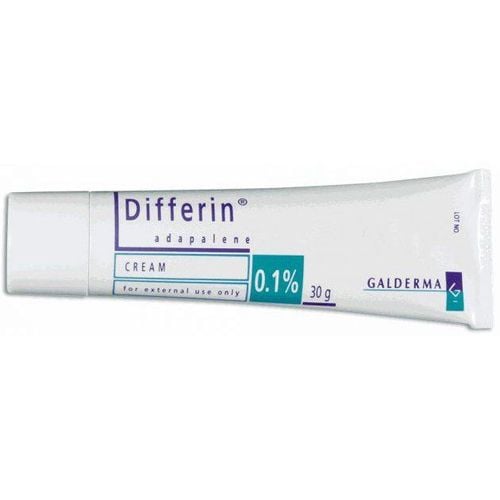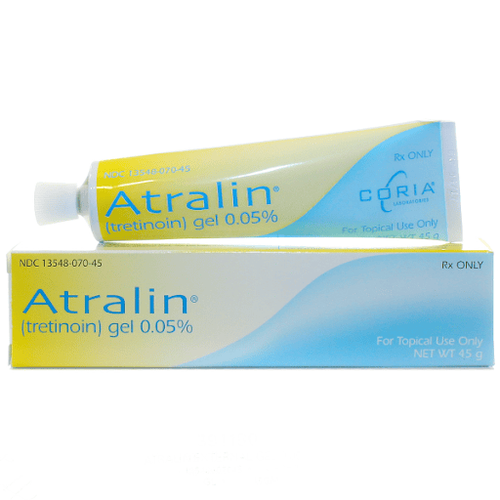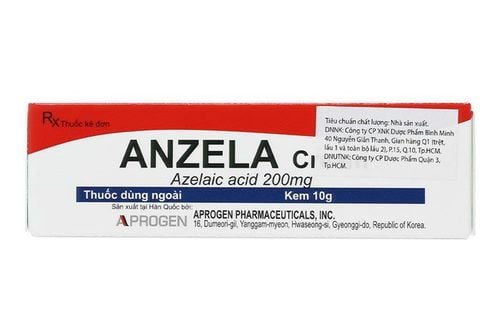This is an automatically translated article.
Teenage acne is a very common condition, but there is no need to worry because there are now many effective ways to help treat teenage acne.1. Teen Acne Condition
Acne is a very common condition in teenagers, which occurs when too much sebum is produced and clogs the pores.Common places where acne appears are the face, neck, back, chest and shoulders. Although it does not affect health much, but if not taken care of well, acne can cause permanent scars. Acne can also cause low self-esteem in adolescents, making them lose confidence when communicating.
2. Characteristics of acne
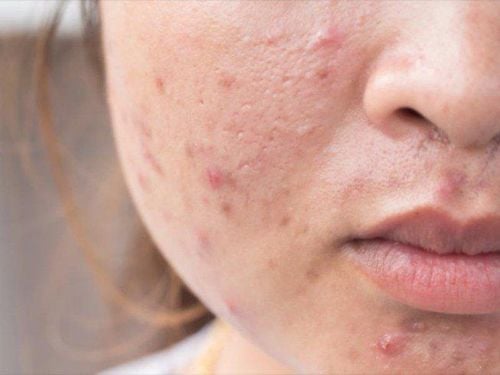
Mụn có thể được chia thành 2 nhóm là mụn do viêm và mụn không do viêm
Types of non-inflammatory acne:
Blackheads: occur when pores become clogged due to a combination of sebum and dead skin cells. The top part of the pore remains open, so dead skin cells, dead skin cells, etc. react with oxygen in the air to create the black color of acne we see. Whiteheads: Whiteheads also form when pores become clogged with sebum and dead skin cells. But unlike blackheads, the top of a whitehead's pore closes, making it look like a small bump protruding from the skin. Because the pores are closed, it is more difficult to treat whiteheads. Inflammatory acne: Besides sebum and dead skin cells, bacteria can also play an important role in clogging pores. Acne-causing bacteria can infect deep below the surface of the skin causing inflammatory acne such as:
Nodules: Nodules occur when inflammation breaks down the wall around the pore. When touching the skin with papules, the pores feel hard, clogged. The skin around these pores is usually pink. Pustules: Pustules also form when inflammation-causing bacteria cause the wall around the pore to break down. But unlike papules, pustules often have a yellow or white head on the head, inside containing pus. Nodules: Nodules are formed when a hair follicle breaks down at the bottom and pushes the pimple to the surface of the skin. Cystic acne is characterized by swelling, redness, large size, and painful to the touch. Cystic acne: can develop when pores become clogged with a combination of bacteria, sebum, and dead cells. The inflammatory response causes damage deep under the skin's surface. This is the largest form of acne, filled with pus, easy to leave scars.
3. Why does teen acne appear?
Why does teen acne appear, why does acne appear in some people but not in others?The exact cause of this phenomenon is not fully understood, but androgens are thought to play an important role. Androgen increases in both boys and girls during puberty. Androgen makes the skin's oil glands become larger, producing more sebum, causing the risk of clogging pores causing acne.
Genetics can also play a role in acne. If you had a parent with acne, you're also at a higher risk.
Using certain drugs such as androgens, lithium, prednisolone,... can cause acne.
In addition, cosmetics with a high greasy consistency can also clog pores, causing acne. Water-based cosmetics are less likely to cause breakouts than oil-based cosmetics.
Several factors can make teen acne worse, including:
Excessive rubbing of the skin causes friction, skin damage. Frequently touching and squeezing pimples Wearing clothes that are too tight can aggravate acne on the neck, back, chest and shoulders. Changes in female sex hormone levels before menstruation can trigger acne in some people. Prolonged stress.

Việc thay đổi nội tiết tố trong kỳ kinh nguyệt cũng là nguyên nhân phổ biến gây mụn trứng cá ở các bạn nữ
4. How to treat teenage acne?
There are many ways to treat teenage acne including:Using over-the-counter acne products: these often contain active acne-fighting ingredients such as acetic acid, benzoyl peroxide, salicylic acid, sulfur . The dosage form of acne products on the market is very diverse, including gel, cream, cleanser, acne patch, etc. The acne treatment effect of these products is usually moderate. Must use continuously for 4-8 weeks to see a noticeable improvement. Prescription treatment: if your teen acne is moderate to severe, you need to see your doctor for intensive treatment. In addition to topical medications, your doctor will usually prescribe oral antibiotics. Oral antibiotics help control acne growth by curbing bacterial growth, which helps reduce inflammation. Antibiotics must be taken for a long time, usually four to six months, then tapered off and stopped as the acne improves. Isotretinoin is the treatment for teenage acne when the acne is severe and has not responded to other treatments. This is a drug that acts on the pathogenesis of acne, the drug helps to reduce the size of the sebaceous glands to produce less sebum to help prevent clogged pores. Isotretinoin is usually taken once or twice a day for 16-20 weeks. The drug can cause birth defects in the fetus, so it should not be used by pregnant women.
Acne treatment at a dermatologist's office: a doctor can treat cystic acne by injecting corticosteroids into the acne. Red light therapy can be used to reduce inflammation and bacteria on the skin. Your doctor may also use salicylic acid to unclog skin pores. Intensive in-clinic acne treatments are a quick and effective way to treat pubertal acne, but success largely depends on your doctor's expertise and experience.
5. Some tips to help prevent teen acne
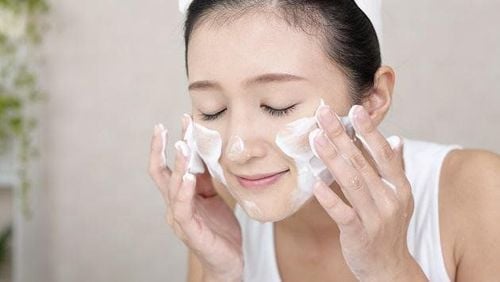
Rửa mặt quá nhiều lần trong ngày cũng là một trong những nguyên nhân dễ gây mụn trứng cá
Don't wash your face too much and don't rub your skin vigorously when washing your face. Acne is not caused by dirt, washing your face with a gentle cleanser twice a day is enough. Washing your face too much can make the skin irritated and dry, stimulating the glands to produce more oil, increasing the risk of breakouts. Use "oil-free" cosmetics or those with the word "noncomedogenic" on the label, this is a cosmetic that does not contain ingredients that clog pores, helping to prevent the risk of acne. Limit touching your face with your hands, bacteria from your hands can spread to your face, increasing the risk of teen acne. Do not squeeze acne: Squeezing acne will lead to serious inflammation and permanent scarring.
Please dial HOTLINE for more information or register for an appointment HERE. Download MyVinmec app to make appointments faster and to manage your bookings easily.
Reference source: webmd.com



